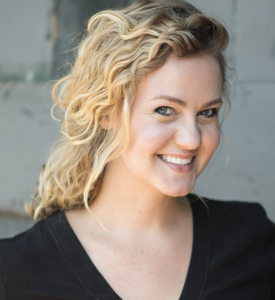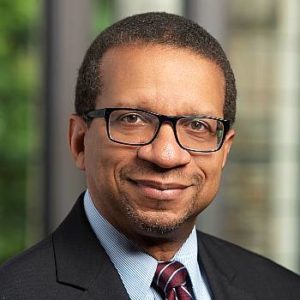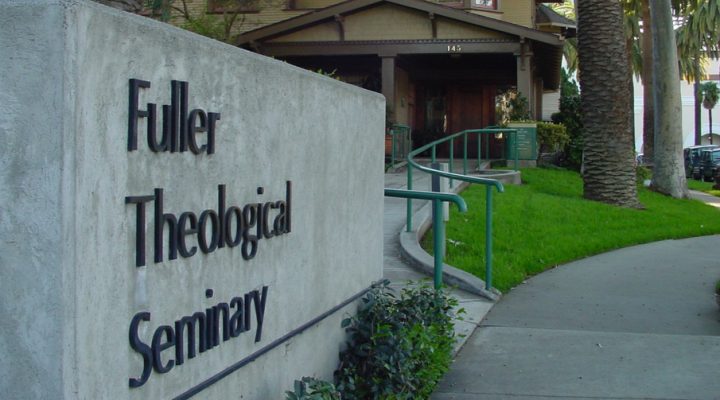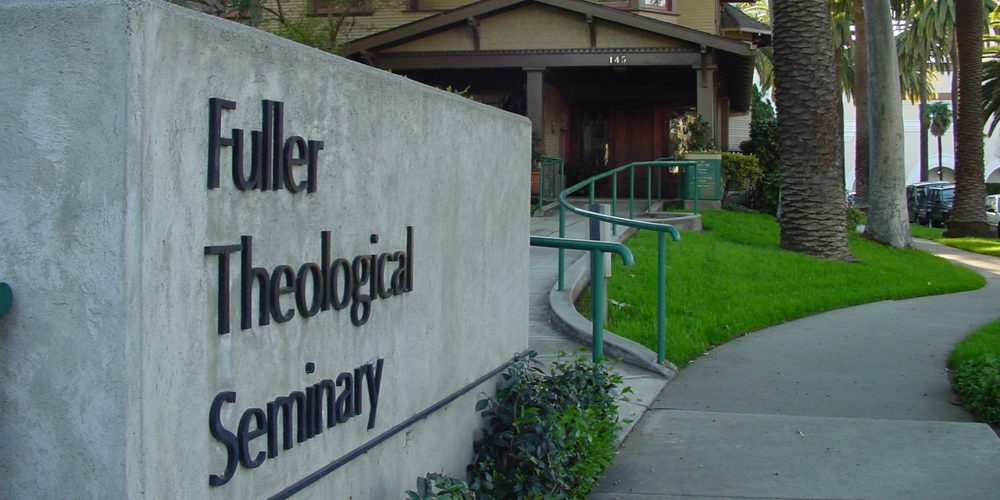Ruth Schmidt considered herself a loyal member of the team at Fuller Seminary — until she was dismissed because she refused to re-sign the school’s statement of faith, which prohibits affirmation of same-sex marriage.
When she came to Fuller in 2017 as a student, she had no problem signing the statement of faith, she said in an interview. “Everyone who starts at Fuller signs the statement of faith at the beginning of their journey.”
But now, seven years later, her views have changed.

Ruth Schmidt
In 2017, she neither agreed nor disagreed with the non-affirming position of the seminary. But like many seminary students who start their walk through the educational system, her ideas and theological positions evolved.
“I didn’t know what I thought about Christian marriage or gay marriage when I signed the statement at the beginning,” she said. “I was going to seminary to learn. I didn’t have a position yet. I wasn’t affirming, but I had lots of gay friends in Kansas City and my heart was really opened to loving on people. When I took Ethics and Sexuality, it was in the middle of the class that we discussed the different theological stances and the different denominations that handle the issue. That made me start to think somebody had done the homework and thought through the theological issues pertaining to same-sex marriage.”
She wasn’t the only one whose viewpoint changed due to the class that’s no longer offered.
Schmidt came to the Pasadena, Calif., seminary from Kansas City, where she attended a church plant sponsored by the Southern Baptist Convention North American Mission Board.
“I went to Fuller because of my pastor in Kansas City who went to Fuller, she said. “I was discerning a call to ministry, and I didn’t know what an M.Div. was. I remember Googling the word ‘theology.’ I just was starting out with no knowledge of the higher-ed world of theological training. I had the Holy Spirit and a call in my heart. I was like, ‘Do they accept women?’ My pastor said yes, and I was like, ‘That’s where I’m going.’”
She started her journey in 2016 as an online student from Kansas City while working full time at Hallmark, where she was a writer.
“I can remember selling my house, packing up everything I could fit into my car, and I moved out to L.A. to study on campus in 2017,” she said.
“My personality is that I’m a slow mover. I’m an introvert. Things have to really stir in my heart and my head for a long time for me to change my mind, so it was a season of witnessing the goodness in the lives of the gay people around me and gay Christians, along with observing the fruits of their labor, seeing that the Spirit was obviously moving in their lives, and then slowly pairing that with the theological study I was doing on my own in the classroom. I think Fuller does a very fair job of presenting all positions, especially in the course I was taking.”
Although Schmidt’s position changed, the Fuller Seminary belief system regarding same-sex marriage and attraction being a sin did not change.
Although Schmidt’s position changed, the Fuller Seminary belief system regarding same-sex marriage and attraction being a sin did not change. That wouldn’t be a barrier for most students, but it was for her because she went to work for the school.
Once students sign the statement of faith, there is typically no requirement to sign it again. However, for senior staff employed by Fuller, the statement of faith must be signed every year. Most recently, she served as senior director of the Brehm Center at Fuller, which required her to sign again.
Schmidt signed the statement of faith in 2016 and 2022. When asked by BNG why she continued to sign the statement of faith despite her newfound convictions, she explained: “I really wrestled with it because I felt like I wasn’t acting ethically or with integrity. My livelihood was connected to my salary. We were still coming out of the pandemic. I couldn’t afford to not have a house. I don’t come from a family with money. There’s nothing I could go back on. So, God gave me peace that it was OK to sign it those years.”
However, that peace seemed to fade when she was asked to sign again in 2023. She asked her supervisor if she could write an explanation as to why she didn’t hold to the beliefs outlined therein, a proposal that was rejected.
In January, she was terminated on a Zoom call. The seminary did not respond to a request for comment from BNG.
Now, Schmidt — like many others who have been in her position — is often asked why she would want to be a part of Fuller knowing their stance on sexual ethics.
“I really appreciate that question because I think it reveals kind of the beauty of the story of what Christianity could be, which is, we respect one another as beloved and created in the image of God,” she said. “So, we strive to be in communion, like Acts chapter two, living together and having all things in common. It doesn’t necessarily mean we agree on everything. The commonality is not about what we agree on, but it is about the commonality of Christ and that he is encompassing our lives and bringing us together.”
“The commonality is not about what we agree on, but it is about the commonality of Christ and that he is encompassing our lives and bringing us together.”
Some Fuller students understand that, she added.
“I have been so overwhelmed by the outreach and the outpouring of non-affirming Fuller students who reached out to me and said, ‘We may not agree theologically, but I want you in my classrooms.’ I will say this about Fuller: it’s a beautifully diverse place full of brilliant faculty that I hope is around for a very, very long time. Fuller changed my life, and so I have nothing but gratitude for it. I do think Fuller is coming to a crossroads, and that’s why I’m so grateful the board is taking this seriously. The board of trustees at Fuller is currently working on updating the sexuality standards because they see that they’re not enforceable and that is the biggest issue.”

David Goatley
Fuller Seminary’s current president, David Goatley, came to the nondenominational school in 2022 from Duke Divinity School, where he served as associate dean for academic and vocational formation, research professor of theology and Christian ministry, and director of the Office of Black Church Studies.
Recently, Goatley appointed a task force of administrators and faculty to facilitate “the community’s consideration of issues related to human sexuality.”
In 2019 and 2020, two former students sued Fuller, alleging they were expelled for being in same-sex marriages. In October 2020, courts affirmed Fuller’s right to uphold its sexual standards policy.
Fuller’s website describes the school as “an evangelical, multidenominational graduate institution committed to providing indispensable, formational education for diverse Christian leaders everywhere.”
Related articles:
Duke Divinity professor will become first Black president of Fuller Seminary
How a seminary education causes a pastor to struggle with Comforting Lies versus Unpleasant Truths | Opinion by Aaron Van Voorhis


